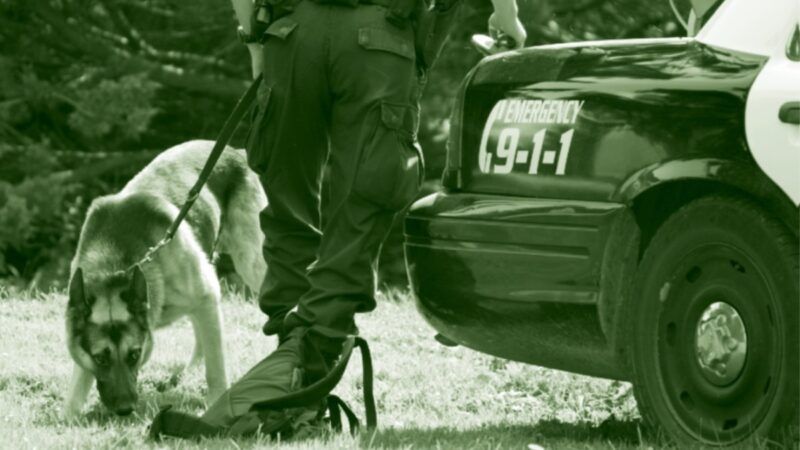Man Says Oklahoma Police Seized $140K From Him Without Cause
Canadian County Sheriff's deputies said Thai Nang's cash was drug money. He says he was buying land, and a local news outlet was easily able to find records backing his story up.

A New Mexico man says Oklahoma sheriff's deputies seized more than $140,000 from him and his business partner on baseless suspicion of drug trafficking, and a local news outlet found the records to back up his story.
Last week, Oklahoma news outlet News 4 reported that Thai Nang, a New Mexico businessman, claimed that the Canadian County Sheriff's Office seized roughly $141,500 in cash from him and his partner during a traffic stop in April.
Nang says he and a business partner were traveling to buy a piece of land when they were pulled over. Sheriff's deputies searched the car and found the money. Nang alleges that when he tried to explain that it was for a property purchase, a deputy responded, "I'm 300 percent sure that's illegal money."
There's nothing illegal about traveling with large amounts of cash, but police often claim it's the fruits of drug trafficking. Under a practice called civil asset forfeiture, police can confiscate property suspected of being connected to criminal activity, even when the owner hasn't been charged with a crime.
Many forfeiture stories start this way, with travelers saying they were carrying large amounts of cash to buy vehicles, deposit it into a bank account, or simply gamble on vacation.
In Nang's case, though, there are records to back up his story.
News 4, apparently more intrepid investigators than the sheriff's office, obtained the bill of sale and interviewed the owner from whom Nang was intending to purchase the property.
"It was a verbal deal and they were on their way back in town to finalize it," the property owner told News 4. "It was $100,000 for the land and then they needed, I think, $30-40,000 to upgrade the electricity and the water for their operation. Why didn't they just look at the bill of sale we have?"
Nang also claims the amount the sheriff's office reported seizing is roughly $10,000 short of the actual amount.
The Institute for Justice, a libertarian-leaning public interest law firm, says Oklahoma's loose forfeiture laws enable such abuses.
"Canadian County, Oklahoma is a highway interdiction hotspot and this latest attempt to forfeit money belonging to out-of-state business owners appears to illustrate how easily Oklahoma's forfeiture laws can be abused," Institute for Justice senior attorney Dan Alban says. "In addition, there is a history of racial disparity in seizures and forfeitures in Canadian County, as well as several other populous counties in Oklahoma, and this just appears to be the latest example."
For example, the Institute for Justice represented a Burmese refugee named Eh Wah. In 2016, Wah was driving across the country as the manager of a Christian band that was raising money for a Burmese orphanage. When deputies from the Muskogee County Sheriff's pulled over the band's tour van, they found $53,000 in cash the band had raised.
Despite not one iota of drugs being found in Eh Wah's van, the deputies seized the money, claiming it was drug proceeds. The sheriff's office released the money back to Wah two months later, the same day that The Washington Post published a story on his case.
More than half of all U.S. states have passed some form of asset forfeiture reform over the last decade, as similar stories of abuses have piled up. Earlier this month, Maine became the fourth state to effectively abolish civil asset forfeiture altogether.
But until more states require convictions or raise the standard of evidence before property can be forfeited, more cases like Nang and Wah's will keep popping up.
The Canadian County Sheriff's Office was not immediately available for comment.


Show Comments (70)